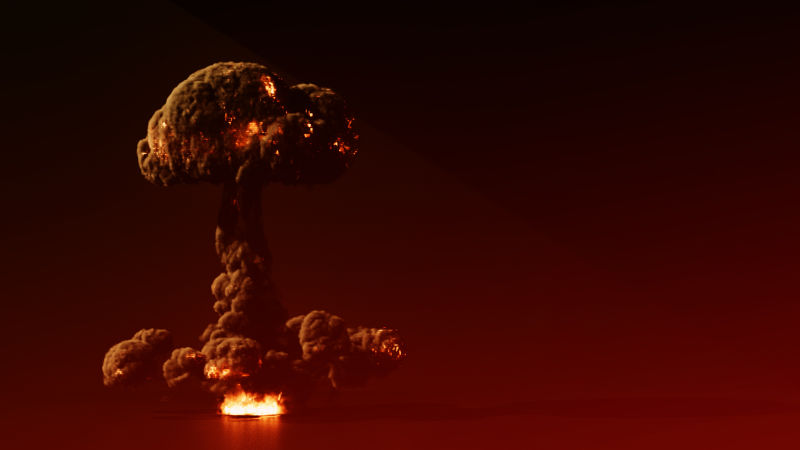On The Beach a haunting evocation of nuclear war
October 15, 2022
Professor Emeritus Richard Falk, from Princeton University, argues that, nuclear dangers have become more salient than at any time at least in this century. More than sixty years ago the outstanding novelist, Nevil Shute, accentuated the same profound hazard in his most considered work, On the Beach.
Nevil Shute was well established as a leading British Novelist before he migrated to Australia, after the war, in 1950. He settled, with his family, in Langwarrin, near the south-east Melbourne suburb of Frankston. He died, after a stroke, in Melbourne in 1960.
Shute was an aeronautical engineer by training and also an accomplished pilot. His novels regularly display an uncommon reliance on lucidly explained, relevant technical detail. This approach, which is engaging and informing yet rarely alienating, adds a remarkable, realistic grounding to much of his work
His first published novel, Marazan appeared in 1926. Shute subsequently published over 20 books. Their highly readable, creative narratives resulted in a number of them being adapted for the screen including A Town Like Alice and The Far Country.
Shutes best-known work, On the Beach, which I have just finished reading for the first time, was originally published in 1957.
It became a major Hollywood film, directed by Stanley Kramer and starring Gregory Peck, Ava Gardner and Anthony Perkins, in 1959. The book and the film are set in Melbourne as it awaits the arrival of unstoppable clouds of deadly radiation migrating around the globe following a terrible, short, major nuclear war in the Northern Hemisphere. The apocalyptic tale is set, by Shute, about six years into the then future. The book was filmed again in 2000.
The first filming produced a memorable quotation attributed to the spirited Ava Gardner: On the Beach is a story about the end of the world and Melbourne sure is the right place to film it. There is a credible story that an Australian journalist, Neil Jillett, created the quote as he wrote up an imaginary interview with Ms Gardner.
Though much awaited, the film was not a great success. Despite the potent Hollywood treatment and publicity, viewers discovered that what was on the screen was a rationally examined, truly man-made horror story about the end of life on earth. This was not what most patrons were looking for.
The book has a much more British-Australian feel. It is significantly better than the film in depicting how relentlessly and comprehensively gruesome large scale nuclear war would be. The New York Times said that the book created “the most haunting evocation we have of a world dying of radiation after an atomic war.”. The Times observed that it was “the most evocative novel on the aftermath of a nuclear war. More recently, The Economist noted that it was, “still incredibly moving after nearly half a century.”
Indeed, the novel stands up very well. And it will retain its relevance over the long-term, I expect, provided the current spasms of war-making madness do not precipitate an updated but similarly comprehensive elimination of life on earth.
One thing Shute managed particularly well was conveying the deep, steady collective change of mood that unfolded. That shared understanding of all essentially going-together is, eventually and overwhelmingly, simply there. And it is not there for macabre effect but to touch on deep aspects of collective human understanding as Shute understood this.
The book is pivotally shrewd on the dangers of proliferation, the dismal aspects of media debate- even then - and the massively destructive failures of leadership. It is regularly and aptly poignant but never mawkish: lessons are attempted to indicate how to face the unfaceable with abiding humanity.
Tom Plate lucidly argued, very recently, in an article in the South China Morning Post, how the US, not just Russia, has helped bring the world closer to nuclear war. He notes, acutely, how, The unseemly primal lust with which Washington by proxy jumped into a regional crisis and made it into an increasingly global one stunned many.
Plate draws on the extensive, germane analysis of Richard Falk, now 91 and emeritus professor of international law at Princeton University. In doing so, Plate concludes that, while China and Russia are no saints when it comes to using simplistic binary images, it is the US which has parleyed its international brand of American exceptionalism into a preposterous permanent innocence.
The title of Shutes book is based on a passage from The Hollow Men by T. S. Eliot:
In the last of meeting places
We grope together
And avoid speech
Gathered on this beach of the tumid river
As it happens, Anthony Daniels (penname, Theodore Dalrymple) a more recent skilled writer (of essays rather than novels) drew the title for a collection of his articles published in 2009, Not with a Bang but a Whimper, from the same source.
Shutes novel was first published around 5 years before the Cuban Missile Crisis and 65 years before the current, conspicuous bellicosity.
As I read On the Beach, I felt that I was in the hands of a fine writer who cared deeply about the dark narrative it presented. It leaves an imprint. I am very glad I read it. Falk recently argued, that, We know what to do [to secure long-term sustainable life for all] but we do not know how to get it done. This confirms perhaps the most powerful implicit message, from over sixty years ago, in Shutes work.

